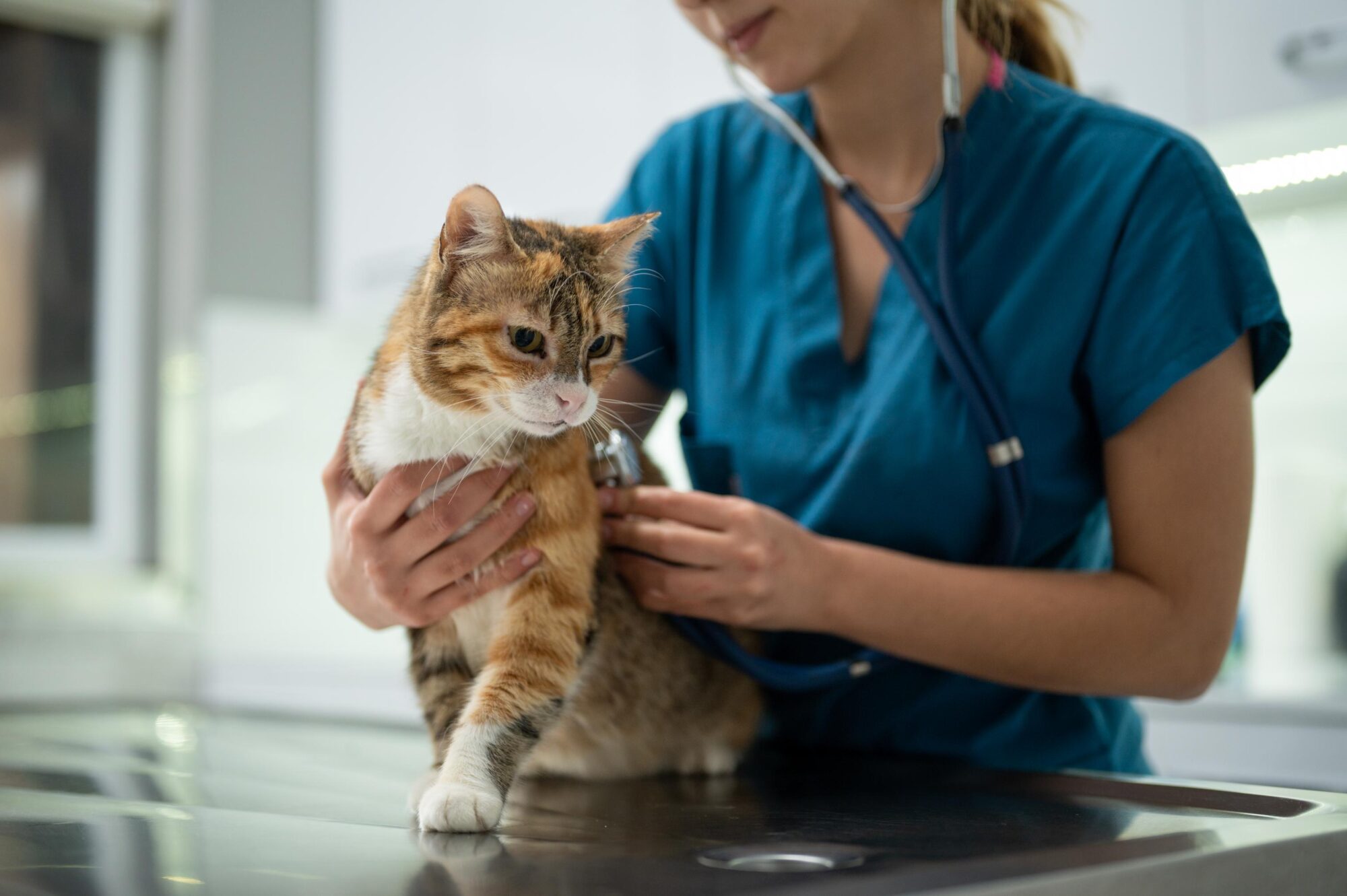Understanding Common Cat Illnesses and Their Treatments

Cats are not known for being particularly forthcoming when they don’t feel well. They rely on you as their caretakers and us as the pet experts at MarketPlace Veterinary Hospital to pick up on it when something isn’t quite right. Being familiar with common cat health issues and feline diseases can definitely give you a paw up when it comes to noticing a problem early.
The Big Three
There are a few diseases our staff very commonly diagnose in our feline patients, and they can all appear somewhat similar. Typically an exam and diagnostics are warranted to confirm a diagnosis if you are suspicious of one of the “big three” feline diseases, which are:
- Diabetes mellitus: The body requires insulin, a hormone produced by the pancreas, to be able to utilize the glucose in food to create energy. When the pancreas is not functioning well or the body’s cells are insulin resistant, the buildup of glucose in the bloodstream can cause increased thirst, increased urination, increased appetite, and weight loss.
- Hyperthyroidism: The thyroid gland in the neck can start to overproduce thyroid hormone in some middle aged to older cats, resulting in an increased metabolism. This results in increased appetite and weight loss. In some cats gastrointestinal signs, urinary changes, and blood pressure increases can also occur.
- Chronic kidney disease: Many cats experience a decline in kidney function as they age. Chronic kidney disease can cause increased thirst, increased urination, and weight loss in affected patients.
Let us know if you feel like your cat may be showing any symptoms of these common cat health issues as they all are more effectively treated when diagnosed early.
Urinary Trouble
Many cats will suffer from feline lower urinary tract disease (FLUTD) at some time in their life.
FLUTD is often caused by cystitis, or inflammation in the bladder. When a cat is experiencing a cystitis flare up, symptoms can occur that include:
- Frequent urination
- Painful urination
- Blood in the urine
- Straining to urinate
Both male and female cats can suffer from cystitis, often being diagnosed in young adult kitties. It is of particular concern in male cats who have a smaller urethral opening. If the urethra becomes blocked with inflammatory debris, the bladder is unable to empty. This is a life-threatening condition and a true pet emergency.
The most common predisposing factor for cats is some kind of environmental stress. This can be change in surroundings, human or animal interactions, or even an illness.
For cats that suffer from cystitis, often changes such as dietary recommendations or anti-anxiety medications can help to prevent future episodes.
Dental Disease
Just like dogs, cats can develop periodontal disease due to plaque and tartar accumulation that can result in oral pain and other issues.
There are definitely a few unique feline diseases that affect the mouth as well. These include:
- Feline gingivostomatitis: Stomatitis is an allergic reaction to the plaque on and around the teeth. Cats with this condition develop very red, painful swelling in the mouth, especially on the gum line. This can cause difficulty eating and may affect grooming habits.
- Feline oral resorptive lesions: Feline oral resorptive lesions (FORLs) are a painful condition that results when normal cells in the tooth called odontoblasts create holes in the tooth. As the lesions progress they can become infected and are often extremely painful. We do not know why some cats develop this condition, however most cats with one FORL lesion will develop many more over their lifetime. Affected cats may show pain, exhibit drooling, bleeding from the mouth, or have difficulty eating.
These diseases make good dental care even more important.
Cats certainly are not small dogs, and they have some conditions and illnesses that are definitely more common for them than their canine counterparts. Thankfully with a watchful eye on them, we can pinpoint their problems sooner and more effectively.

